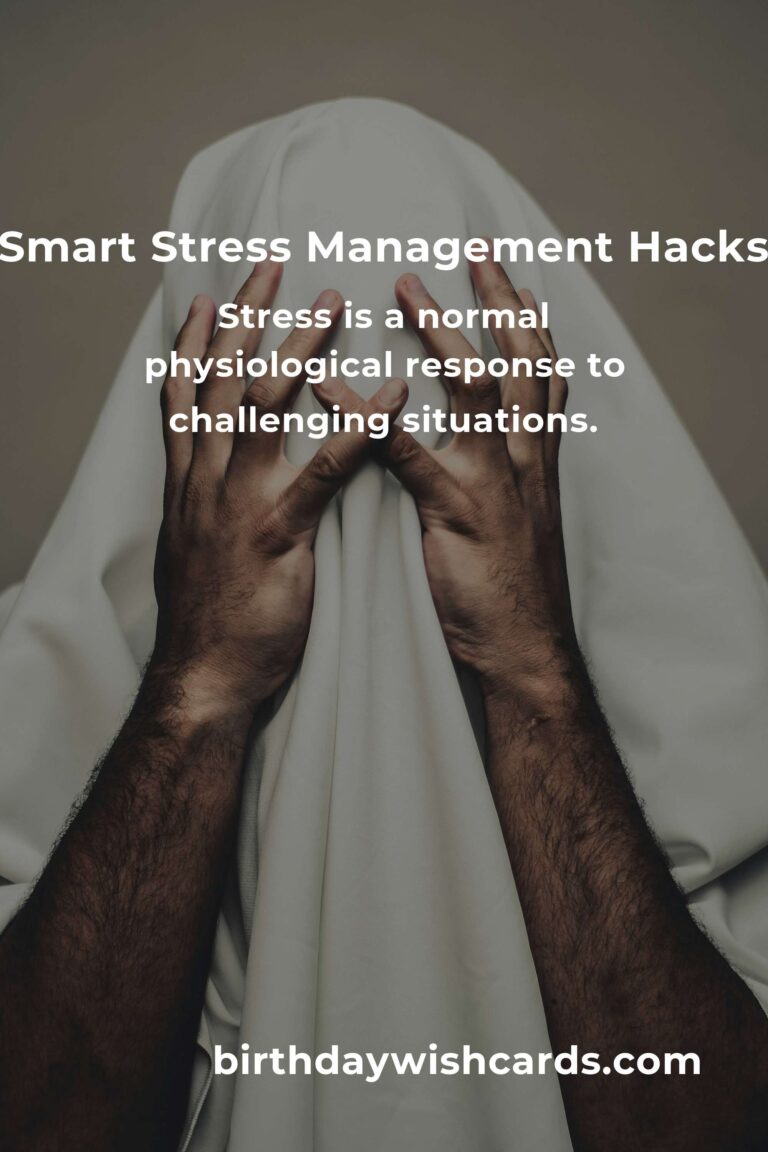
In today’s fast-paced world, stress has become an inevitable part of our daily lives. This article explores essential hacks to manage stress smartly and effectively. These strategies are designed to help you cope better with stress, improve your mental health, and lead a healthier, happier life.
Understanding Stress and Its Impact
Stress is a normal physiological response to challenging situations. While short-term stress can be beneficial, chronic stress can lead to severe health problems such as anxiety, depression, heart disease, and a weakened immune system.
Identify Your Stress Triggers
The first step in managing stress effectively is to identify what triggers it. Keep a journal to track your stressors and note patterns that arise. Understanding your triggers can help you develop strategies to manage them.
Practice Mindfulness and Meditation
Mindfulness and meditation are powerful tools for stress management. By focusing on the present moment, you can reduce anxiety and promote relaxation. Spend a few minutes each day practicing mindfulness techniques or meditation to help clear your mind and calm your body.
Exercise Regularly
Physical activity is a proven stress reliever. Exercise releases endorphins, which improve your mood and act as natural painkillers. Aim for at least 30 minutes of moderate exercise most days of the week to help combat stress.
Maintain a Balanced Diet
A healthy diet can impact your stress levels. Foods rich in Omega-3 fatty acids, such as salmon and walnuts, and those high in antioxidants, like berries and leafy greens, can help reduce stress. Avoid excessive caffeine and sugar, which can increase stress and anxiety levels.
Get Adequate Sleep
Sleep is essential for stress management. Lack of sleep can exacerbate stress and make it difficult to cope with daily challenges. Aim for 7-9 hours of quality sleep each night to help your body recover and rejuvenate.
Connect with Others
Social support is crucial in managing stress. Spend time with family and friends, or join support groups to share your experiences and feelings. Building strong relationships can provide emotional support and help you cope with stress more effectively.
Time Management and Organization
Effective time management can significantly reduce stress. Prioritize your tasks, set realistic goals, and use tools like planners and to-do lists to stay organized. Avoid procrastination by breaking larger tasks into smaller, manageable steps.
Learn to Say No
Overcommitting yourself can lead to stress and burnout. Learn to say no when necessary and set boundaries to protect your time and energy. Focus on what truly matters and align your commitments with your values.
Seek Professional Help
If stress becomes overwhelming, consider seeking professional help. Therapists and counselors can provide guidance and support, helping you develop coping strategies tailored to your needs.
By incorporating these smart stress management hacks into your daily routine, you can reduce stress, improve your mental health, and lead a more balanced life. Remember, stress management is an ongoing process, and finding the right strategies for you is key to achieving long-term success.
Stress is a normal physiological response to challenging situations. Identify what triggers your stress to develop effective management strategies. Mindfulness and meditation can reduce anxiety and promote relaxation. Exercise releases endorphins, improving mood and acting as natural painkillers. A healthy diet impacts stress levels and can help reduce stress. Adequate sleep is essential for stress management and recovery. Social support is crucial in managing stress effectively. Effective time management can significantly reduce stress. Learn to say no to avoid overcommitting and stress. Seek professional help if stress becomes overwhelming.
#StressManagement #HealthyLiving #Mindfulness #MentalHealth

